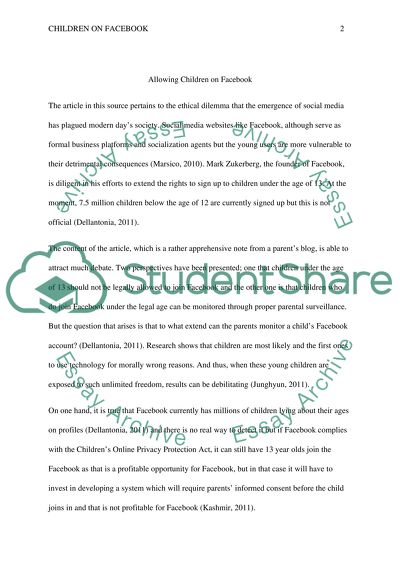Cite this document
(“Should Children Be Allowed on Facebook Essay Example | Topics and Well Written Essays - 1000 words”, n.d.)
Should Children Be Allowed on Facebook Essay Example | Topics and Well Written Essays - 1000 words. Retrieved from https://studentshare.org/social-science/1582361-essay-critique-topic-should-children-be-allowed-on-facebook
Should Children Be Allowed on Facebook Essay Example | Topics and Well Written Essays - 1000 words. Retrieved from https://studentshare.org/social-science/1582361-essay-critique-topic-should-children-be-allowed-on-facebook
(Should Children Be Allowed on Facebook Essay Example | Topics and Well Written Essays - 1000 Words)
Should Children Be Allowed on Facebook Essay Example | Topics and Well Written Essays - 1000 Words. https://studentshare.org/social-science/1582361-essay-critique-topic-should-children-be-allowed-on-facebook.
Should Children Be Allowed on Facebook Essay Example | Topics and Well Written Essays - 1000 Words. https://studentshare.org/social-science/1582361-essay-critique-topic-should-children-be-allowed-on-facebook.
“Should Children Be Allowed on Facebook Essay Example | Topics and Well Written Essays - 1000 Words”, n.d. https://studentshare.org/social-science/1582361-essay-critique-topic-should-children-be-allowed-on-facebook.


